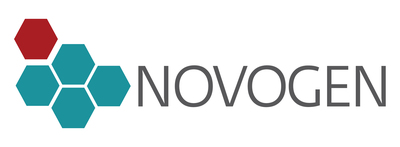SYDNEY, Aug. 12, 2014 /PRNewswire/ -- The Australian biotechnology company, Novogen Limited (ASX: NRT; NASDAQ: NVGN), today announced receipt of funding from the FSHD Global Research Foundation as part of the Company's efforts to find effective treatments for a range of musculo-degenerative diseases including facioscapulohumeral dystrophy (FSHD).

FSHD is one of the most common forms of muscular dystrophy and genetic hereditary diseases seen in skeletal muscle. It is estimated that it affects 7 in 100,000 people.
While the primary focus for Novogen will continue to be in the field of oncology, the Company has created a separate division dedicated to pursuing novel therapies in the treatment of a wide range of neurodegenerative, musculo-degenerative, and regenerative medicine opportunities. That division, Operation Jacob Hope, is headed by Dr Stephen Palmer PhD.
The common link in the different lines of R&D being pursued under Operation Jacob Hope has to do with the recent breakthrough discovery that the Company's super-benzopyran drug technology library holds compounds with a dual ability to modify the activity of tissue stem cells and to protect normal tissue from the toxic stresses of the disease process.
As Dr Graham Kelly PhD, Novogen Group CEO, explained, "We designed the super-benzopyran compounds in order to create the first family of drugs capable of reaching back past regular cancer cells, to their parent cells, the so-called tumor-initiating cancer cells. These are cells that possess all the characteristics of tissue stem cells, but unlike their regular daughter cancer cells, are completely resistant to radiotherapy and chemotherapy. These are the cells that lead to recurrent disease after apparently responding to initial therapy. Recurrent disease can rarely be treated."
"This is the basis of the excitement over the super-benzopyran compounds. For the first time, we are seeing the full range of cancer cells within a tumor respond to the one form of therapy, an effect that we believe will prevent recurrent cancer."
"In the course of those studies, we came to realize that the action of these drugs in killing cancer stem cells was more than just a blunt cytotoxic effect. It was part of a much more intricate mechanism of action that has to do with the ability of these compounds to control the growth and development of stem cells into their adult cell type. Then going on to protect those adult cells from stress induced by abnormal gene activation, as is found in FSHD," Kelly added.
"Given the current interest in regenerative medicine and the ability to restore function to damaged tissues through the transplantation of normal adult stem cells, we immediately recognized that we had a unique opportunity to pursue the alternative, that of being able to promote the activity of a patient's own tissue stem cells, without all the challenges and hurdles of stem cell transplantation."
Dr Stephen Palmer explained, "In muscular dystrophies like FSHD, the body eventually succumbs to the underlying disease process because the body's skeletal muscle stem cells become exhausted trying to repair the constant damage to the muscle fibres caused by the underlying genetic abnormality. The approach we are adopting is to develop a means of promoting the growth and development of those stem cells while reducing the impact of the constant damage to the adult fibres. This two-pronged attack is an entirely novel and exciting approach."
The funding being provided by FSHD Global Research Foundation will support a specific collaboration between Novogen and fellow Australian biotechnology company, Genea Biocells, which has successfully developed the first accurate laboratory model of FSHD in the world using embryonic stem cells donated by FSHD-affected families. This unique resource will enable Novogen to screen its libraries of super-benzopyran drugs for active compounds.
Dr Kelly added, "Project Jacob Hope is a broad program of which this collaboration with FSHD Global Research is just one part. We are investigating the same technology to treat a range of other muscular dystrophies as well as neurodegenerative diseases including Alzheimer's. A related study we have initiated in Australia that we find particularly exciting is that of using this technology to promote the activity of inherent neural stem cells in order to restore function to brain, spinal cord and nerve tissue injured by trauma or stroke."
About Novogen Limited
Novogen is a public, Australian drug-development company whose shares trade on both the Australian Securities Exchange ('NRT') and NASDAQ ('NVGN'). The Company has two main drug technology platforms: super-benzopyrans (SBPs) and anti-tropomyosins (ATMs). SBP compounds have been created to have a uniform cytotoxic effect against both cancer stem cell and regular daughter cancer cells and are being developed in the first instance for the treatment of ovarian cancer, neural cancers (glioblastoma, neuroblastoma) and prostate cancer. ATM compounds target the cancer cell cytoskeleton and are being developed in combination with other anti-cytoskeleton drugs to deliver comprehensive destruction of the cancer cell cytoskeleton in cancers such as melanoma, neural cancers and prostate cancer.
Further information is available on the Company's website, www.novogen.com.
For Further Information Contact:
Dr Graham Kelly
Executive Chairman & CEO
Novogen Group
Graham.Kelly@novogen.com
+61 (0) 2 9472 4100
Investors
In the USA
Lazar Partners
Novogen@lazarpartners.com
+1 212-867-1762
Media
In the USA
Lazar Partners
Novogen@lazarpartners.com
+1 212-867-1762
In Australia
Dr. Douglas Pretsell
Instinctif Partners
+61 (0) 3 9657 0706
In ROW
Sue Charles
Instinctif Partners
+44 (0) 20 7457 2020
Logo - http://photos.prnewswire.com/prnh/20131220/NY36990LOGO
SOURCE Novogen Limited




